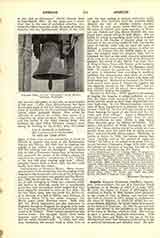

Angelus SILESIUS (Johannes Scheffler), convert, poet, controversialist, the son of a Lutheran Polish nobleman, b. in Breslau in 1624; d. July 9, 1677. He took the degree of doctor of philosophy and medicine, in Padua, in 1648, became court physician to the prince of Oels, in Silesia, was received into the Catholic Church in 1653, taking at confirmation the name of Angelus, to which he added the surname Silesius (Silesian), by which name he is known in the history of literature. In 1661, he was ordained priest and retired to the monastery of the Knights of the Cross in Breslau, where he died. His fortune he gave to pious and charitable institutions. With the Jesuits Spee and Balde, he was one of the few distinguished poets that Germany produced in an age of poetical barrenness and debased taste. He published, in 1657, the two poetical works on which his fame rests. “The Soul‘s Spiritual Delight” (Heilige Seelenlust) is a collection of more than two hundred religious songs, many of them of great beauty, which have found their way not only into Catholic, but even into Protestant hymn books. “The Cherubic Pilgrim” (Der Cherubinische Wandersmann) is a collection of over sixteen hundred rhymed couplets, full of deep religious thought expressed in epigrammatic form. A small number of these couplets seem to savor of quietism or pantheism. They ought to be interpreted in an orthodox sense, for Angelus Silesius was not a pantheist. His prose writings are orthodox; “The Cherubic Pilgrim” was published with the ecclesiastical Imprimatur, and, in his preface, the author himself explains his “paradoxes” in an orthodox sense, and repudiates any future pantheistic interpretation. In 1663 he began the publication of his fifty-five controversial tracts against the various Protestant sects. Of these, he afterwards selected thirty-nine which he published in two folio vols. under the title of “Ecclesiologia”.
B. GULDNER

